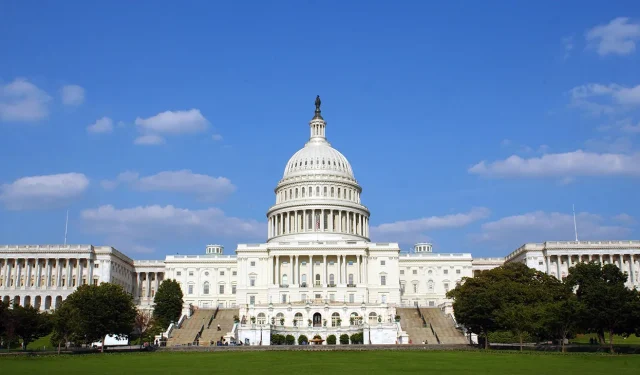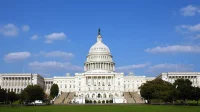Bipartisan Senate Group Reintroduces NO FAKES Act to Combat Unauthorized AI Deepfakes
A coalition of bipartisan senators has reintroduced the NO FAKES (Nurture Originals, Foster Art, and Keep Entertainment Safe) Act, a legislative initiative designed to counteract the misuse of individuals’ voices and likenesses through AI-generated deepfakes. This move has garnered support from various stakeholders in both the entertainment and technology sectors.
On Wednesday, Senators Chris Coons (D-DE), Marsha Blackburn (R-TN), Amy Klobuchar (D-MN), and Thom Tillis (R-NC) reintroduced the bill. They were joined by Representatives María Elvira Salazar (R-FL-27), Madeleine Dean (D-PA-4), Nathaniel Moran (R-TX-1), and Becca Balint (D-VT-At Large), nearly a year after its initial introduction last July. Organizations such as SAG-AFTRA, the RIAA, and the MPA previously expressed support for the legislation, and the latest version has attracted endorsements from notable entities like YouTube and OpenAI.
Federal Rights for Voices and Likenesses
The proposed legislation seeks to establish federal rights for individuals over their voice and visual likeness, a critical measure for well-known performers and artists. According to a press statement, the act mandates the swift removal of unauthorized deepfakes from user-generated content platforms, a step aimed at enhancing user safety and protecting personal integrity.
Growing Concerns Over AI Deepfakes
As AI technology continues to evolve and become more accessible, the prevalence of deepfakes has surged. A stark illustration of this trend occurred in February, when a viral video featured deepfakes of public figures such as David Schwimmer and Scarlett Johansson criticizing Kanye West over his antisemitic comments. Johansson, responding to the misuse of AI in the video, stated, “I am a Jewish woman who has no tolerance for antisemitism or hate speech of any kind. But I also firmly believe that the potential for hate speech multiplied by A.I. is a far greater threat than any one person who takes accountability for it. We must call out the misuse of A.I., no matter its messaging, or we risk losing a hold on reality.”
Industry Giant Support
The bill’s reintroduction was further bolstered by the presence of several industry leaders, including MPA CEO Charlie Rivkin, Recording Academy CEO Harvey Mason Jr., SAG-AFTRA President Fran Drescher, RIAA CEO Mitch Glazier, YouTube’s global head of artists Vivien Lewit, Warner Music Group CEO Robert Kyncl, and country music icon Randy Travis. Travis recently became known for his innovative use of AI to replicate his singing voice, enabling him to produce new music following a stroke that affected his vocal abilities.
Kyncl notable remarked, “This bill reflects what can happen when tech and creative industries come together – fostering cutting-edge innovation while protecting human identity and artistry. We look forward to collaborating with key members of the U.S. Senate and House to advance the NO FAKES Act this year.”
The Path Forward
Glazier emphasized the dual focus of the legislation, stating, “This bill proves that we can prioritize the growth of AI while protecting American creativity at the same time. We applaud Senators Blackburn, Coons, Tillis, and Klobuchar; Representatives Salazar, Dean, Moran, Balint, and their bipartisan colleagues for their exceptional leadership in driving this legislation that provides balanced and effective protections against exploitative uses of one’s voice and likeness, while simultaneously supporting free speech, reducing litigation, and fulfilling the potential of AI technology.”
As discussions about AI evolve, this legislation could mark a pivotal moment in protecting individual rights within the rapidly changing landscape of digital content creation.


